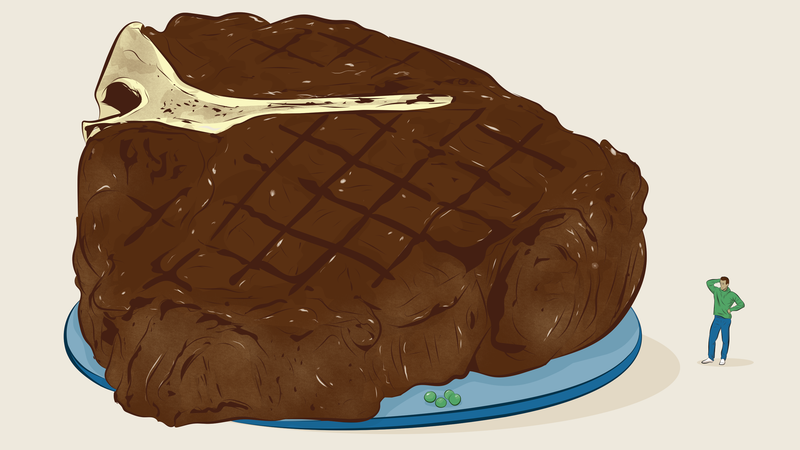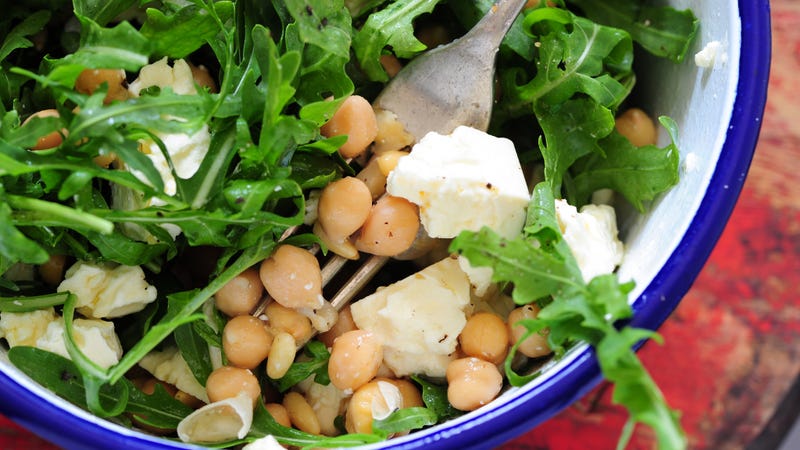May 10, 2016
How Much Protein You Really Need In Your Diet?

By Stephanie Lee
Getting enough protein is important, regardless of whether you want healthy skin and nails, to lose weight, or get bulging biceps. But “enough” could be the difference between eating a few extra eggs and washing down your steak with protein shakes. Here’s how to find out.
The “Official Guideline” Is Enough to Maintain, But More Is Better
Muscles hog most of the limelight, but healthy skin, hair, hormones, and organ function all require protein too. The Health and Medicine Division’s (formerly the Institute of Medicine) says the average sedentary adult should eat 0.36 grams of quality protein per pound of his or her total body weight each day. For example, a 150-pound office worker who doesn’t exercise would need about 54 grams of protein a day to meet his basic nutritional needs. That’s about two fist-sized chicken breasts. That’s also just the RDA, which is okay to live on if you’re sedentary, aren’t interested in any changes whatsoever, and get enough calories to maintain your weight. Most Americans already do a good job of meeting the RDA, but there’s a growing body of research that says most adults would see more benefits by eating more than the RDA. The authors of this recently published review paper in Applied Physiology, Nutrition, and Metabolism note that higher protein intakes help whether you want to lose weight, keep weight off once you’ve lost it, or work toward athletic goals. Rather than nailing down an absolute number, the authors recommend a range between 0.57 to 0.76 grams protein per pound of body weight.
In other words, you’d be eating at least two times more protein. Eating more protein takes getting used to, and if you don’t have pre-existing kidney problems, high-protein diets are not bad for you. But they’re probably going to be more expensive.
You Need More Protein When You Exercise
When you throw in consistent exercise, your protein needs increase. In order to get stronger, the rate of your muscle repair and growth needs to outpace the muscle breakdown process. And for that to happen, you need to eat food and—yup, you guessed it—protein. The type of exercise you do changes the recommendations a bit. This study in International Journal of Sports Medicine suggests:- If you lift weights, go for 0.63-0.82 g/lb body weight.
- If you do endurance sports like running or cycling, go for 0.54-0.63 g/lb body weight.
More Protein Helps You Lose Weight

- You’re sedentary or do light activity: Aim between 0.45-0.68 g/lb ofbody weight.
- You’re highly active: Aim between 0.6-1.2 g/lb of body weight, especially if your goal is to maintain your muscle. The source for this range comes from a paper in the European Journal of Sport Science. The authors maintain that the less body fat you have, the more you may benefit from the higher end of the range. That means you would base your actual protein intake on your lean mass (your ratio of muscle to body fat).
If You Want to Build Muscle, You Need Less Than You Think
In general, eating 0.36 to 0.54 g/lb of your body weight, alongside an appropriate weightlifting program and eating adequate calories to maintain (or gain), is enough to build muscle. That said, some folks in fitness circles swear by higher protein, at least 1 g/lb of body weight to build muscle. Kamal Patel, director of independent nutrition research siteExamine.com, explained why that number doesn’t apply to most:The vast majority of lifters won’t get any additional muscle building benefit from eating more than 0.8 g/lb or so. This number can actually go down as you get more experienced and need less protein, since you’re not a newbie and hence, not breaking down a ton of protein during lifting sessions.Indeed, a study in the Journal of Applied Physiology took 12 novice lifters and had them take either 0.61 g/lb or 1.19 g/lb over a 4-week period. The researchers found no differences in strength or muscle gains between the two groups. There is, however, a caveat: studies like this one often look at short-term results, so the long-term outcome is less clear. This is not to say the 1 g/lb guideline is totally bogus; it’s just not necessary for people who are overweight or obese, or for people who are already eating plenty of calories. As Alan Aragon, an educator for theNational Strength & Conditioning Association, told me, “With inter-individual variability in mind, you can’t just make the universal claim that 1 g/lb is not appropriate for anyone.” For now, here’s the scoop: eat more protein if you want to, but after a certain point, more protein isn’t going to help you build muscle any faster. Beyond that, the “extra” is just calories.
Older Adults Should Really Eat More Protein

Since aging makes it harder to grow muscle due to various physiological factors, it’s important to get higher protein intakes than even the average young person, especially if you don’t have much muscle to start with and you’ve just started exercising as a 60-year-old.Patel isn’t alone in this. Studies like this one in The Journals of Gerontologyhave indicated that strength (especially lower body strength) is closely related to survival and a higher quality of life in your later years. That means older adults, age 65 and over, would benefit from eating at least 0.54 g/lb body weight or more to mitigate muscle and strength loss that’s a part of the aging process.
